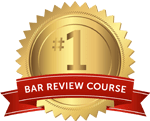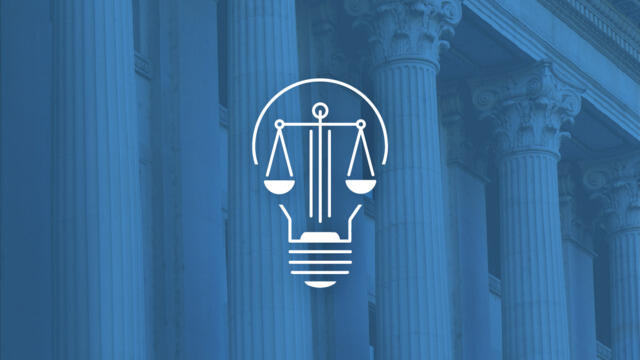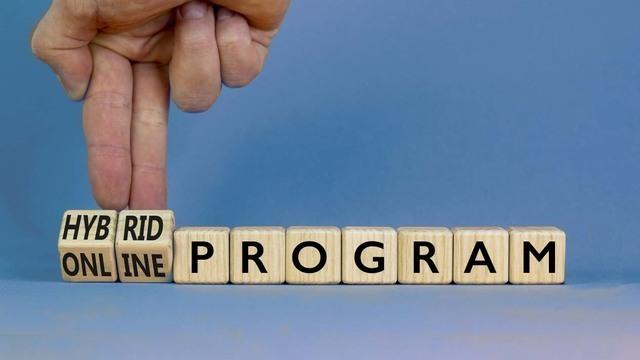You may have received advice to set up "informational interviews" with people in the areas of practice that interest you. But do lawyers really land jobs that way?
An informational interview is a meeting, typically a face-to-face coffee or lunch, with someone who works in the job-seeker's desired industry to learn more about their field and expand the job-seeker's network of contacts. This is an intentional and focused type of networking that can be more effective than networking through other means such as bar association events or online resources. Because an informational interview is less formal and less high-stakes than a job interview, it takes the pressure off of both sides and allows them to share information and build trust. And the answer to the opening question is an emphatic YES, lawyers DO land jobs this way.
Sometimes the job connection happens DIRECTLY. This was the case for a talented first-year law student in my Contracts class when I was a law professor. He had a passion for urban development and had worked as a city planner. During his first semester, I happened to meet an attorney at my gym who was an associate at the law firm that handled the most exciting public-private partnerships and urban development projects in our city. I asked the lawyer if she would meet my student for lunch for an informational interview. When she objected with, "oh, we're a small firm, we don't hire law students!" I responded by assuring her that my student was not yet looking for a job, he just wanted to know more about law practice in the field and learn about some of the projects her firm had worked on. She agreed to meet.
My student so impressed the young attorney at the lunch meeting that she went back to the law firm partners and told them, "you've got to meet this guy!" They hired him as a law clerk starting that very semester — his first semester of law school. He and my gym buddy are both partners in that law firm today.
However, the path from "let's meet for coffee" to "you're hired" is not always quite that direct; it can take several steps! Years ago, I was living in a new city where I had few legal contacts. Someone suggested I meet with a non-lawyer he knew who had worked for a leading legal foundation in the city. The woman I ended up meeting with was, in retrospect, what I like to think of as a "connector" — a person with a talent for bringing people together. Like the hub of a wheel, connector people have relationships that reach out in many directions through a community.
The "connector" suggested I meet with a person from her book club who happened to be a federal judge: Judge 1. Judge 1 referred me to an available job with Judge 2. I interviewed for the position, and even though we hit it off personally, another more-qualified candidate got that job. (It happens!) However, soon after that I got an email from another judge in the same courthouse — Judge 3. As it turned out, Judge 3 had an unanticipated gap between law clerks, and Judge 2 had recommended me to fill the gap. That interview resulted in a temporary clerkship with Judge 3, which led to several other courthouse positions that kept me working and allowed me to increase my skill set for the years before I took the leap to full-time bar exam teaching. (And all that work in federal courts finally clued me in to Federal Civil Procedure!)
As these stories illustrate, informational interviews do lead to jobs, even when your goal is not to pitch yourself for a job with the person you are meeting. If you are just getting started in your job search and perhaps are unsure where you would like to end up, frame your goal as gathering information, allies, or other potential contacts and avenues for exploration.
How can you make the informational interview work for you?
First, ask yourself who you know with connections in, or close to, a field of practice that interests you? Think of someone you know who can connect you to someone you want to meet. Consider friends, favorite professors, people you met through an internship, past work contacts, and yes gym buddies — anyone who might know someone. Start asking around. Find out if someone in your current circle knows somebody who works at the employer you are interested in, or practices in the field of law you are interested in.
Then, ask your friend if they are willing to share contact information or if you can use their name when contacting the person. This step is important! Judge 1 in my story above was a highly-respected federal judge; it is unlikely she would have agreed to meet with me based on a cold-contact email. However, because the trusted connector person had suggested we talk, she agreed to meet for coffee. In some cases, your contact will give the desired contact a heads-up that you will be reaching out; otherwise, it may be fine to just use your contact's name, as in, "So-and-so suggested I contact you…" in your email.
Second, email the person asking if they can meet. You may need to follow up to find a good time in their schedule. Tell them (briefly!) who you are and explain that you would like to learn more about the field. Don't attach your resume to the email; you are not asking them for a job. You are asking them to share their expertise for a few minutes before or during their busy workday.
Meet face-to-face if possible! Sheila Nielsen of Nielsen Career Consulting coaches her lawyer and executive clients in using informational interviews throughout their job searches and career transitions. Nielsen advises, "Informational interviews can be done over the phone, they can be done by Zoom, but they're most effective in person — by far. And the reason is because you're making a real connection with another human being. And then they begin to feel invested in you in a way that they just don't over the phone or if they email you. It's a very different level of trust." Developing trust is key — so meet in person whenever that is an option!
In the meeting, ask a lot of questions! Ask about their work, about the practice area, about recent developments and current challenges affecting the field, what their typical day is like, the pros of working for their current employer. Share briefly about your own background and goals — don't rattle off your entire resume, but do share the parts of your experience that make you interested in their area of law, or the common ground that allows you to connect with the other person. Do have your resume available and share it with them if they ask. And — this one is important! — ask them who else they recommend you contact. Nielsen loves the phrase, "If you were me, who would you talk to?" This gets them thinking about people who are doing interesting work in the field, people who might be good mentors — and people who might be hiring.
After the interview, you will have added another contact to your network and received leads to expand your network. Also, each discussion you have about the industry or field of practice will "demystify" that field for you and will make its people and language feel more familiar, so when you do walk into a job interview, you will do so already comfortable talking to people in that industry or area of practice. You will have intentionally engaged in the process of turning yourself from an outsider to an insider.
Not every contact will be helpful — but most of them will be! Most people love to be approached as an expert in their field and asked for no-strings help or advice. Your genuine curiosity makes them want to advocate for you. And you never know which informational interview will eventually lead to a job offer, or how many "steps" it might take along the way.
Let's be honest: for many of us, sending the email or making the phone call asking for the meeting is the hardest step. It's awkward, it's scary, it sets us up for rejection. But really: what do you have to fear? Perhaps a person you don't know doesn't have time to meet with you. Or worse: the contact is unhelpful or even discouraging. But you will find many more people who are helpful — because you are not asking for a job, you are not asking for a huge chunk of their time, you are not asking them for money. You just want them to share their expertise. And as professionals, we love to do that!
So step outside your comfort zone and start meeting people one-on-one!
If you are looking for your first lawyer job or seeking to transfer areas of practice, do update your LinkedIn page and let your LinkedIn contacts know you are looking, and do consider getting involved in a bar association or pro bono project and building your network of friends and contacts in those places. But most importantly, take charge of your job search and increase the trusted relationships you have in the field by using the great tool that is the informational interview.










